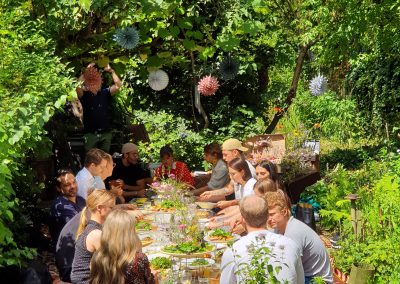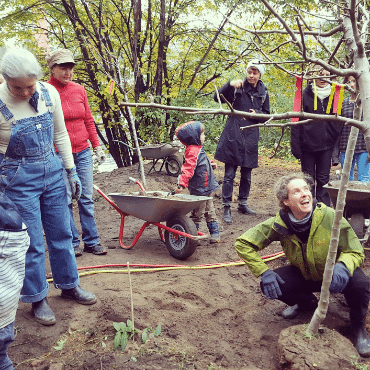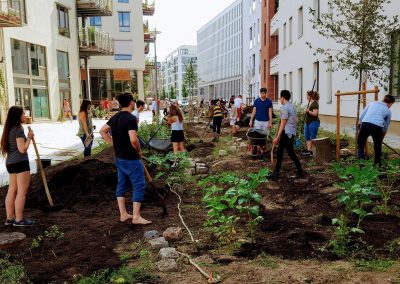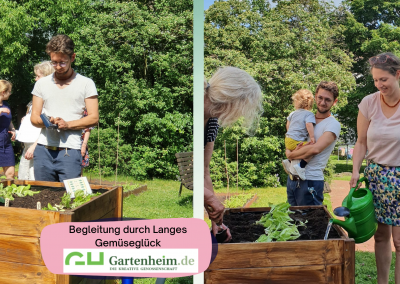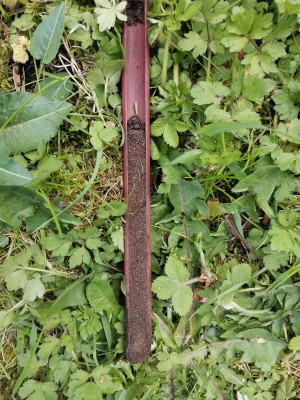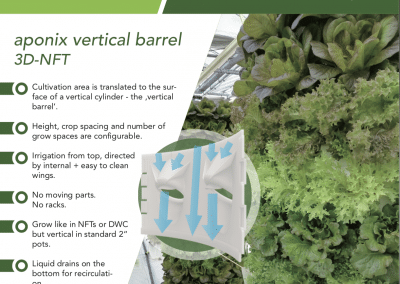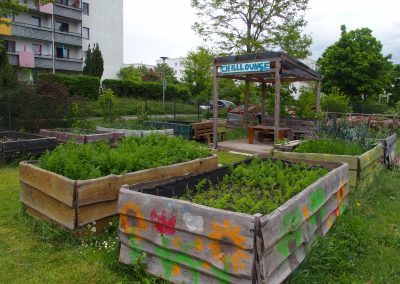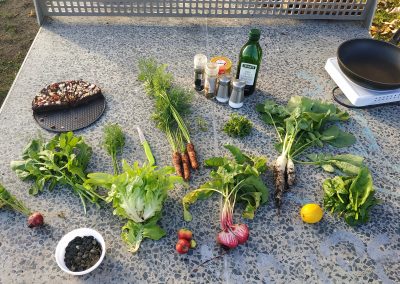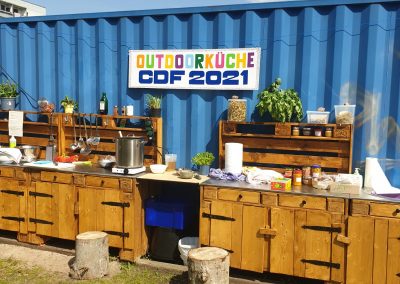Spreeacker wurde 2011 von der Genossenschaft Spreefeld ins Leben gerufen, als eine Sammlung von Garten-, Bildungs- und Kulturinitiativen. Ziel war es, die Nachbarschaft und die breite Öffentlichkeit einzuladen, die Freiflächen an der Spree rund um das spätere Spreefeld-Quartier zu entdecken, zu erkunden und zu aktivieren. Daraus entstand der gemeinnützige Verein Spreeacker e.V., der inzwischen eine Reihe von Gemeinschaftsgärten an diesem Standort entwickelt und betreut hat. Diese Gartenarbeit soll nicht nur Spaß machen, sondern auch lehrreich sein, für alle Beteiligten und die breite Öffentlichkeit; die ersten Parzellen mit heimischen Obstbäumen sind längst bepflanzt. Ein Modellprojekt für essbare Landschaften – ein Food Forest – wurde im öffentlichen Raum initiiert: in Kooperation mit der Genossenschaft Spreefeld und dem Bezirk Berlin-Mitte. Der Food Forest verbindet Praktiken der Permakultur und der essbaren Landschaftsgestaltung mit der Art und Weise, wie die Natur Wälder entwickelt. Mehr als 80 verschiedene Pflanzen in diesem Garten sind essbar und/oder produktiv: von den Blättern kleiner Kräuter bis hin zu Früchten und Nüssen von Bäumen und Sträuchern. Dieser Urban Food Forest wächst mit der Unterstützung der umliegenden Gemeinde. Spreeacker strebt eine breite Palette von externen Kooperationen und Partnerschaften mit Expert*innen, Student*innen, Nachbar*innen, Aktivist*innen und Interessierten an.
Spreeacker engagiert sich für die Entwicklung und Demonstration der Praxis essbarer und produktiver Landschaften im urbanen, öffentlichen Raum. Spreeacker versteht sich als Teil einer größeren Bewegung, die aktiv daran arbeitet, der sich abzeichnenden Ernährungs- und Klimakrise einen Schritt voraus zu sein.
Aktivitäten umfassen: Die Praxis der Entwicklung und Demonstration essbarer und produktiver Landschaften im städtischen, öffentlichen Raum, in Zusammenarbeit mit privaten und öffentlichen Partner*innen, Nachbar*innen, Expert*innen, Student*innen und Aktivist*innen; Bildungsarbeit in Form von Führungen, Besichtigungen, Workshops und Diskussionen mit einer Vielzahl von Gruppen. Derzeit arbeitet Spreeacker an einem neuen Projekt, KollektivesLernen, mit Marco Clausen; https://www.kollektiveslernen.net/; Kontakte mit Permakulturexpert*innen, Gemeinschaftsgartenaktivist*innen und anderen Lebensmittelexpert*innen.
Einige der Errungenschaften von Spreeacker sind die Entwicklung und der Start des Food Forest, Waldgarten, im Wilhelmine Gemberg Weg; die Verwaltung von Gemeinschaftsgärten mit Flüchtlingen und Immigrant*innen und das Einbringen von Lebensmittelanbau in den öffentlichen Raum, einschließlich Hochbeeten im Straßenraum.
Ein entscheidender Wendepunkt für Spreeacker war die Unterzeichnung der Nutzungsvereinbarung mit der lokalen Regierung, die es ermöglichte, den Food Forest auf staatseigenem Land zu entwickeln. Spreeacker erwartet, dass sie in Zukunft eine große Menge an Lebensmitteln, insbesondere Obst, Beeren und Nüsse, anbauen werden; im Moment ist ihre Hauptdienstleistung jedoch Bildung.

